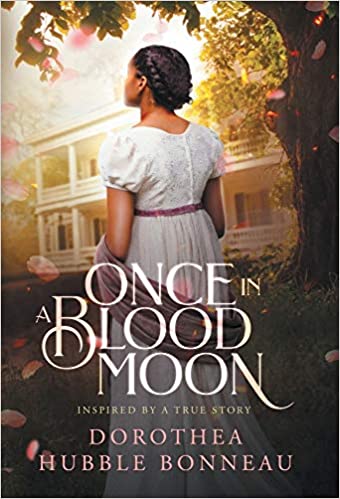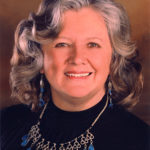ONCE IN A BLOOD MOON by Dorothea Hubble Bonneau (Tanzania)
Once in a Blood Moon by Dorothea Hubble Bonneau (Tanzania 1966-68)is the winner of the 2020 American Fiction Award. The novel tells the story of an African American heiress of a prosperous plantation flees for her life when her mother dies and her father is murdered by racists eager to seize her estate.
It is a novel that is set in 1807 on the Heaven Hill Plantation, upriver from Georgetown, South Carolina, and sixteen-year-old Alexandra Degambia walks a tightrope stretched between her parents’ ambitions. Her father, a prosperous planter, wants to preserve the heritage of his African ancestors. But her mother, who can pass for white, seeks to distance herself from her African roots and position herself in the elite society of wealthy free-women-of-color.
Alexandra, however, has dreams of establishing her own place in the world as an accomplished violinist. She assumes her talent and her family’s wealth will pave her way to success. When her ambitions spiral into a life-or-death struggle when her parents die, Alexandra learns that sometimes destiny has its own plans.
Dorothy Bonneau wrote to me recently about this, her award-winning novel.
•
Serving as a Peace Corps Volunteer opened my eyes and my heart to a world I barely knew existed. It was the single most transformative experience of my life.
One objective of my writing adventure was to bring us closer to the realization of Dr. Martin Luther King Jr.’s dream that all people should be judge according to the content of their character and not the color of their skin. Specifically, I was eager to highlight the compassion, ingenuity, intelligence, and knowledge of African Americans, First Nation People, and indentured servants.
This required reframing America’s historical perspective to include experiences that have, for the most part, been ignored in the telling of American history. I was teaching high school in an inner-city school when I started my research 15 years ago, and I was eager to illuminate a history which would inform my multi-racial students that African who had been brought to this continent from the Gambia helped to provide the wealth that created a financial base that contributed to the prosperity of South Carolina.
My research yielded a startling fact that I had never heard mentioned in history classes: The first Africans to set foot in an effort to colonize the new world were brought as slaves by Lucas Vasquez d’Ayllon, who had received a commission from Charles V.
Lucas Vasquez d’Ayllon set off with three ships and a smaller vessel capable of navigating rivers. He had 500 colonists, including 100 slaves. As an aside, civil rights advocates, Fr. Medisinos and Fr. Las Casa were in his contingent. Shortly after arriving, d’Ayllon died of illness. Power was seized by men eager to exploit both the indigenous tribes (specifically probated by Charles V) and the African slaves. The slaves united with the Cofitachiqui natives and drove the Spanish who had not died from fever back to Hispaniola.
My protagonist’s ancestors are those Africans who broke the bonds of slavery when they forced their captors to flee. They also planted rice. I chose the Diola people to be Alexandra’s (protagonist) ancestors. In the book, I imagine Alexandra’s father lives in a Diola like village located on his prosperous plantation. Dr. Robert Baum, a Dartmouth professor whose expertise is the Diola, was gracious enough to meet with me and I researched the Diola culture. His work informed the traditional Diola funeral of Alexandra’s father.
•
 Once in a Blood Moon
Once in a Blood Moon
by Dorothea Hubble Bonneau (Tanzania 1966-68)
336 pages
Acorn Publishers
June 2020
$13.99 (Kindle); $24.00 (Hardcover); $14.95 (Paperback)

I appreciate the pithy review of the history and delighted that Dorothea Bonneau’s work has been recognized.
This indeed is an unknown history to me.
I would like to quote here from the late Dr. Josephine Miles’ “The Power Of Literature: from her book POETRY AND CHANGE :
“The power of literature was the power to point, denote, evoke the thing itself….
But it was very hard to tell what was the thing itself.
How to get at it? By naming it? by describing? by relating to responses–then no longer ‘in itself’?
The urgencies of Hemingway, Santayana, Stevens, Williams, different as they now seem to us, all
shared at that time the feeling of rediscovery of new values in objectivity, though ways toward it were not always clear.”
Josephine Miles page 119, POETRY AND CHANGE, U of C Press, 1974
Books written by Peace Corps volunteers usually provide insights into culture and history. Dorothea’s novel obviously does that too. I look forward to reading it.
This is wonderful news…I look forward to reading your book.